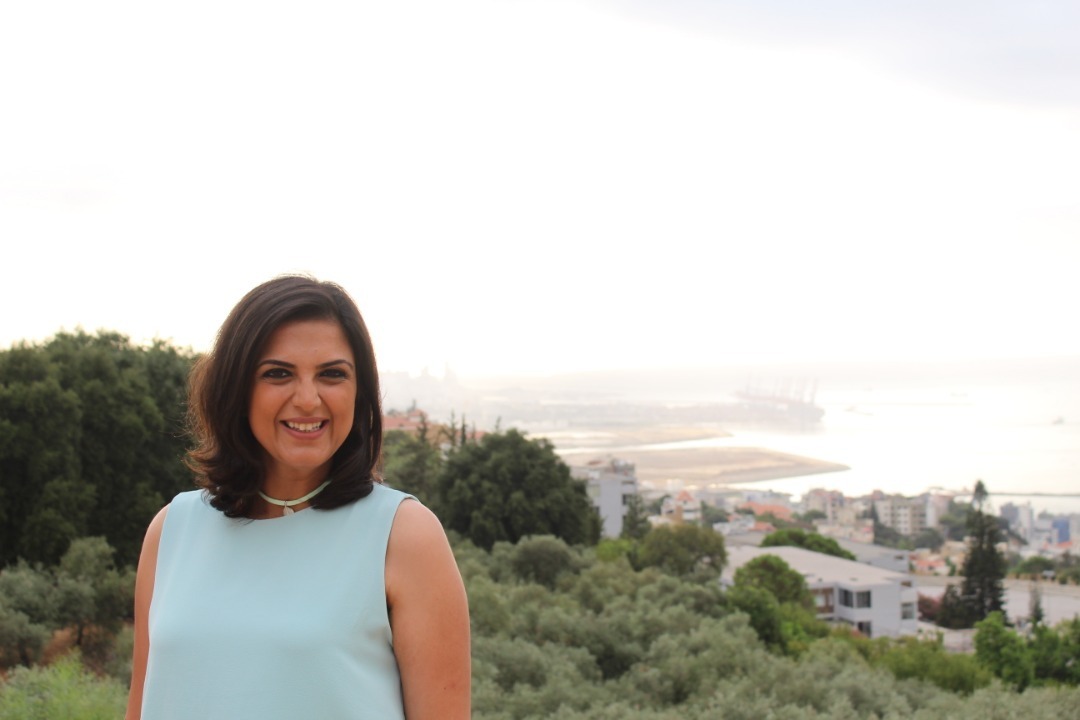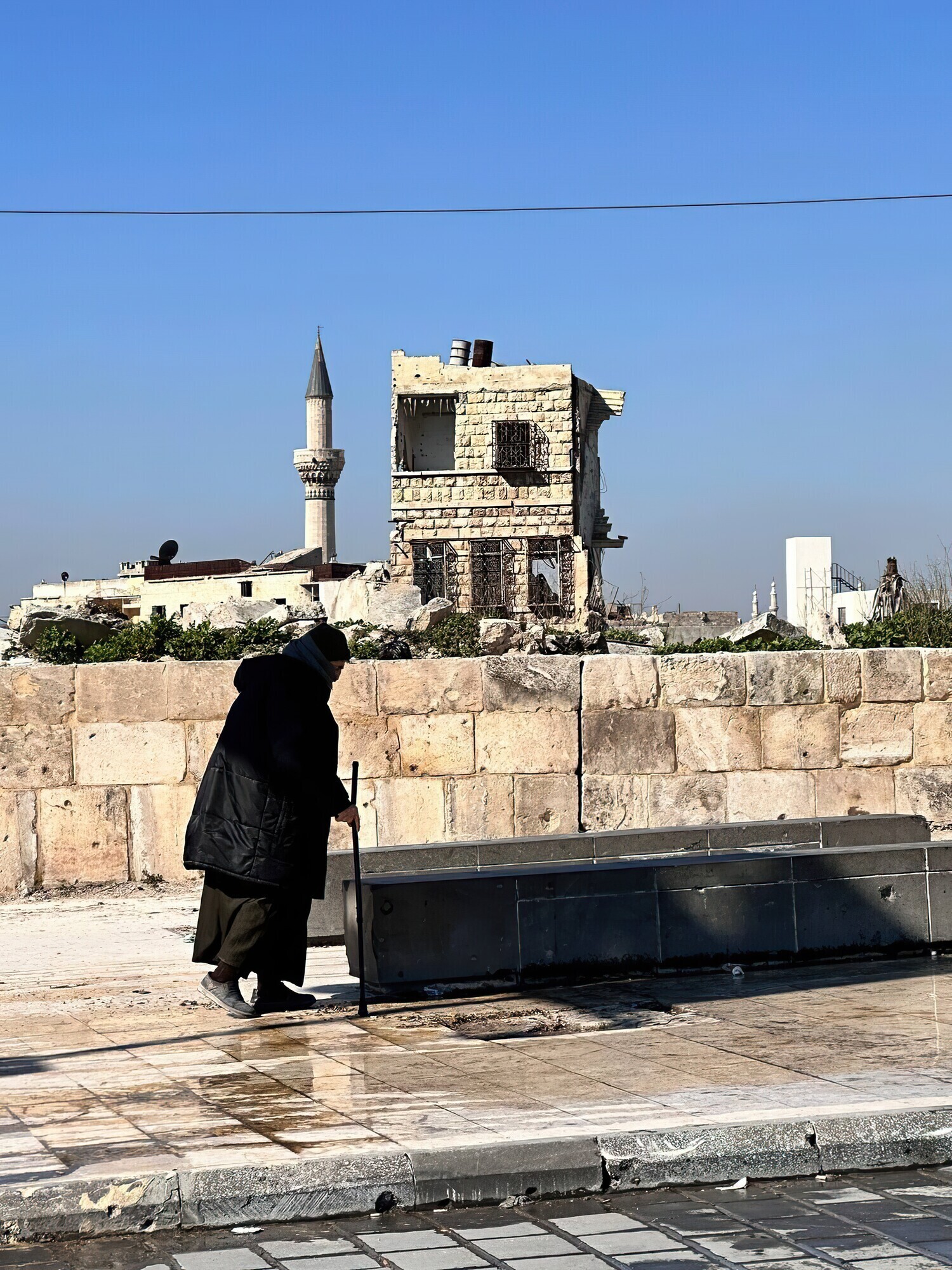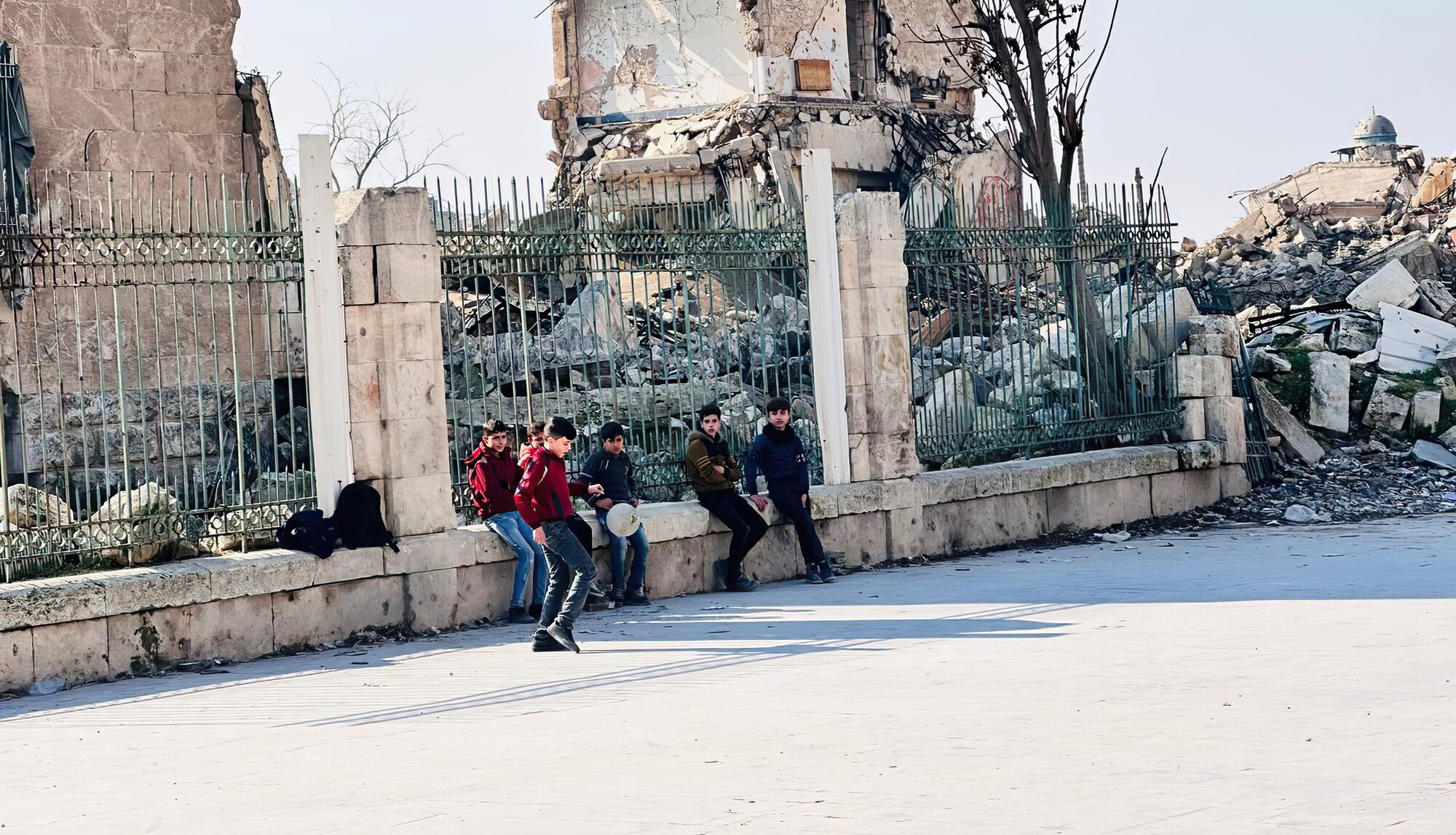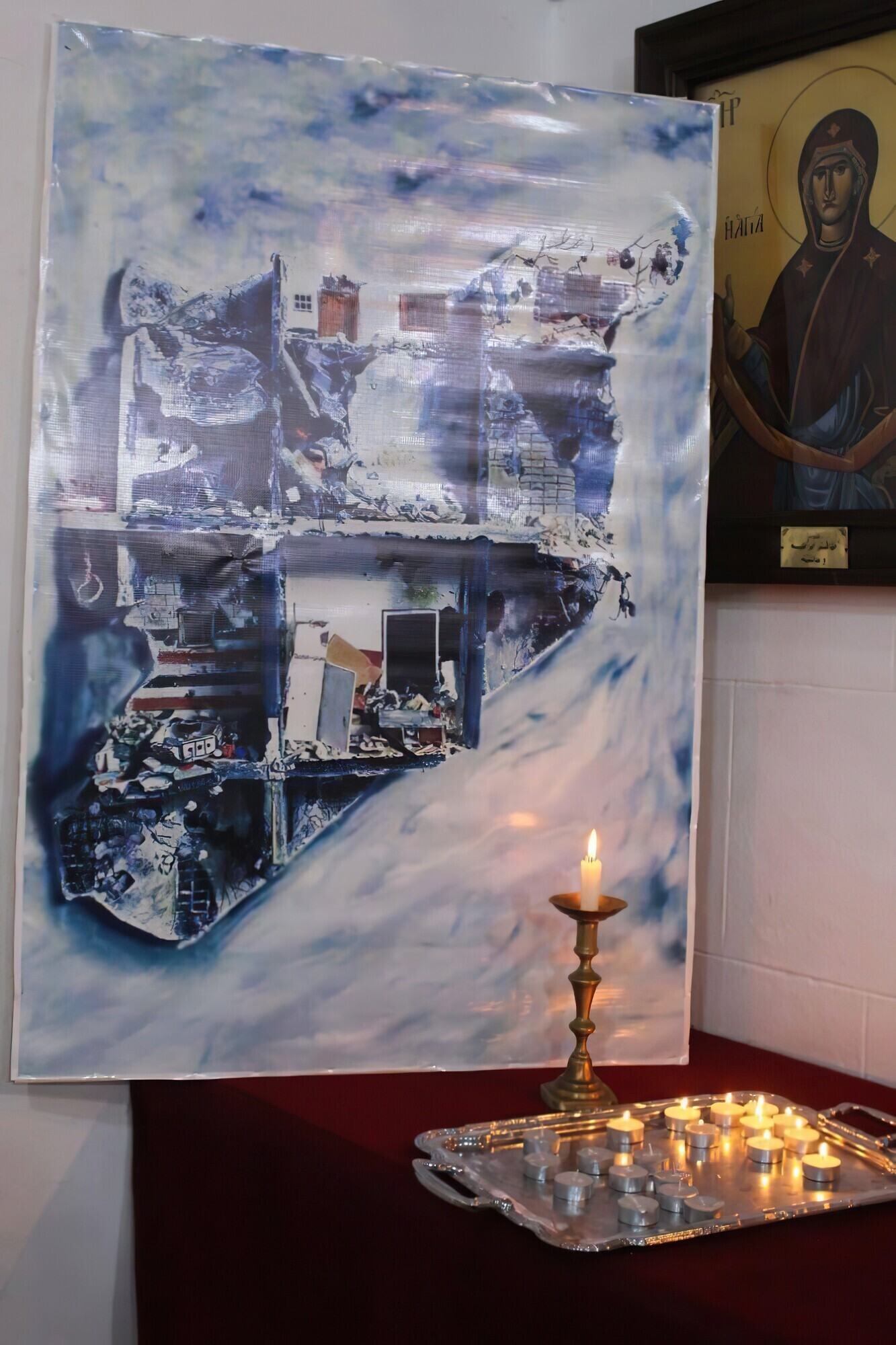Depuis Alep, en Syrie :
En quête d’espoir au lendemain des séismes
“There would always be hope somewhere, but now everything is destroyed. There are still areas that were not affected directly, not destroyed, but the people there are destroyed from inside.”
These are the words of Petra Antoun, Mennonite Central Committee (MCC) staff person in Syria, reporting from Aleppo on Feb. 24. She is working with MCC church and civil society partner organizations who are looking for ways to bring hope and practical help to people who are reeling from the aftermath of the earthquakes in Syria and Türkiye.
Syria was already weakened by almost 12 years of armed conflict that preceded the Feb. 6 and Feb. 20 earthquakes. The fighting which began on March 15, 2011, damaged many buildings, making them vulnerable to shocks from the earthquake. Many families have also been displaced by conflict and are living in unfinished and unsafe buildings that are at higher risk for collapse.
Antoun, who also felt the earthquake in her home city of Tartous, spoke with Meghan Mast, multimedia storyteller for MCC Canada, about the situation and MCC’s response on “Relief, Development and Podcast,” an MCC podcast. In this article, their words have been condensed for length and readability.

Meghan: Can you describe how things are looking in Aleppo right now?
Petra: I was walking the past two days, just looking above, checking if something would fall. Most of the buildings are either destroyed by war and then the earthquake, or they are about to fall. People are scared of going back to their house to do their normal tasks. Kids are afraid. They have this trauma, the screams of their mothers, or whatever they have experienced. And people are not speaking about the trauma that they have been through.
Meghan: It sounds like some of the need that you’re seeing is psychological. What are some of the other needs that you’re seeing right now?
Petra: Before the earthquake, it was difficult for people to get their basic needs (met). And now after what’s happened, many lost their jobs. They need food. This is the basic, basic need nowadays. They need food that they can use, like canned food, because many lost their houses so there’s no kitchen. They need a place to stay because now they are at the main centers that we have – the schools, the mosques, the churches, halls and some other centers that they use for community.
So, there are many needs that we can help with. But this needs a lot of thinking, wisely and in coordination with other communities, other organizations on the ground, so no duplication will happen. We need to think: What are the needs not only for now, but also for the couple of weeks to come, for the couple of months to come?
Meghan: Are MCC and our partners responding already? Or is this sort of a collecting information stage?
Petra: I think it’s both now. We are thinking about doing things to intervene now. And then we are thinking about six months, or a year to come. What is going to happen (now) is to coordinate the church partners or other organizations to distribute food baskets and hygiene kits because these are needed, especially diapers for kids or even sanitary pads for women.
All the partners are asking for support in rent. And by the way, they don’t have hot water to take a shower in these centers, so they were putting cold water on the kids to shower them. In Aleppo, it’s very cold. It’s the coldest city in Syria. I know you cannot compare it to Canada, sure. But for Syria, it’s too cold. We don’t have fuel, any kind of heaters. We don’t have electricity most of the time. It’s a huge, huge matter here.

Meghan: What are some of the stories you have heard that have stuck with you?
Petra: One of the partners was telling us that he was a bit sad because there were families who, even during the 12 years of war, never reached out to the church to give them any food basket or any help. But now with the earthquake, they are reaching (out). They lost their income, their shop was destroyed, or even if it’s not destroyed, nobody is going to buy anything. I mean, you can find people buying food, but not shopping to buy a jacket or shoes. So those people who have these clothes shops – how will they live if nobody is buying from them?
Many people left Aleppo. There was a small car having more than nine people sleeping inside the car. Kids are afraid to go back to the house, or even if they go back to the house, they are afraid to stay in their rooms. They would prefer sleeping in another room. The older they get, the more traumatized they are.

Meghan: Syria had been facing hardship before the earthquakes through many years of war. Can you talk about the compounded challenges that Syria’s facing?
Petra: Yeah, with the sanctions issue. Sanctions (put in place by many countries in 2011) were very hard on the Syrian people. They were putting sanctions on the government, but to be honest, they were on the people. Because of that, we don’t have fuel to generate electricity, to have some heat during winter, or to have bread, basic items or formula for babies.
Things are too expensive with the high exchange rate. A normal family will not be able to afford to get their basic needs because of the high costs, which is caused by the exchange rate, which is caused by the sanctions. So, everything is related. You cannot get fuel for your car. If you have money, you can get whatever you want. But the vulnerable people won’t have money; they won’t be able to buy fuel to have some heat in their houses.
Meghan: What would you say to MCC supporters who are expressing care and concern about people affected by the earthquake?
Petra: I would say thank you first. Really, thank you. You are trying to help the vulnerable people who were hit by both war and the earthquake. I would say keep praying for the people. It’s a huge thing to give money because this is totally needed. For sure. But also keeping people in your thoughts, in your prayers is a very important thing.

The issue of sanctions is a very important thing. Help with that would be much appreciated not only for the earthquake response, but also on the long term. Because six months from now, I don’t think that need will be stopped.
Meghan: Was there anything else that you wanted to add?
Petra: I like taking pictures of hope. In Aleppo, I was just searching for any kind of hope, any way to take a picture that would look like this is a good thing to mention. But now, everything is destroyed – somehow the souls, the people who died, the destruction of houses … There are still areas that were not affected directly, not destroyed, but the people there are destroyed from inside.
We want to rebuild those people’s hearts by supporting them. In every sense, not only by sending money, but by sending love. I’m thankful to love through MCC. So MCC is love and hope and faith in action.
To listen to the whole podcast, look for "Relief, Development and Podcast" wherever you get your podcasts. You can find it online too.
Through church and civil society partner organizations in Syria, MCC is:
- Providing ready-to-eat foods, hygiene items and diapers for babies for 4,000 people in Aleppo.
- Planning a longer-term food response in Aleppo, Latakia and Tartous.
- Supporting the lifting of sanctions. On Feb. 17, MCC U.S. signed a statement along with 15 other national faith organizations, urging the U.S. to lift sanctions on Syria and expedite humanitarian assistance after the earthquake.
- Distributing hygiene items and blankets.
- Providing emergency food in shelters, along with hygiene items, drinking water, blankets and mattresses, and trauma counselling.
- Continuing programming that was in place before the earthquake to distribute food baskets and provide support for winter heating needs.
Syria earthquake response
MCC is working with partners in Aleppo, Syria to provide emergency assistance such as food baskets, clothing, hygiene supplies, winterization supplies and water resources. MCC will also be providing partners with psychological and trauma training.

